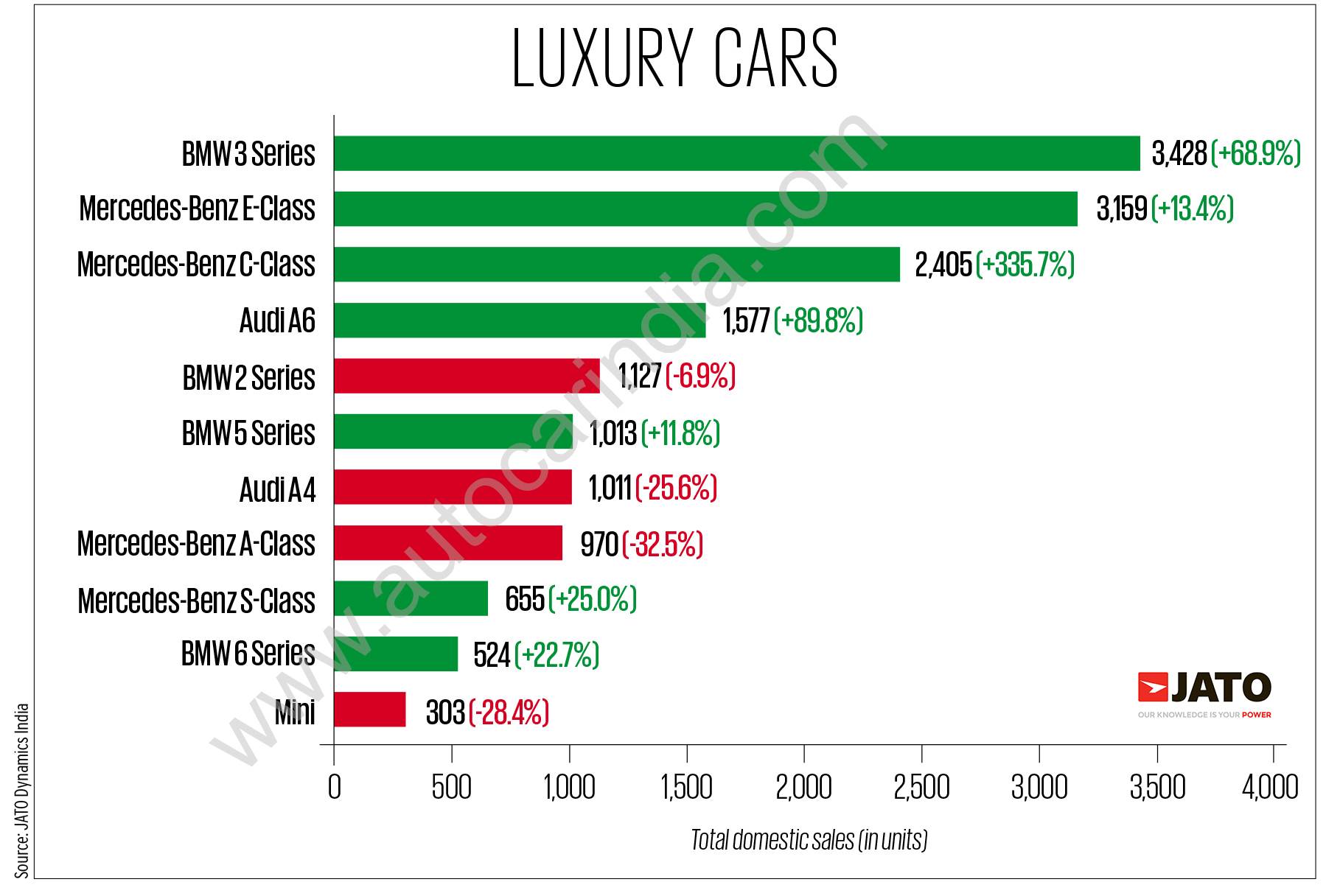The China Factor: Analyzing Luxury Car Market Difficulties For BMW, Porsche, And Competitors

Table of Contents
Shifting Consumer Preferences in the Chinese Luxury Car Market
The Chinese luxury car buyer is evolving rapidly. No longer solely focused on established European brands, today's consumer prioritizes a blend of prestige, technological innovation, and a strong brand identity that resonates with their values. The rise of domestic brands like Nio, Xpeng, and Li Auto, often offering compelling electric vehicle (EV) options with advanced technology, directly challenges the traditional dominance of BMW and Porsche. The influence of social media and online reviews is also paramount, shaping purchasing decisions and accelerating the spread of brand reputation—both positive and negative.
- Increased demand for SUVs and electric vehicles: The preference for larger, more versatile SUVs continues to grow, coupled with a significant surge in demand for EVs driven by government incentives and environmental awareness.
- Preference for personalized and technologically advanced features: Chinese luxury car buyers expect cutting-edge technology, advanced driver-assistance systems (ADAS), and personalized in-car experiences that cater to their unique lifestyles.
- Growing importance of brand storytelling and social responsibility: Consumers are increasingly drawn to brands that align with their values, demonstrating social responsibility and crafting compelling narratives that resonate with their cultural context.
- Impact of younger generation's buying habits: Millennials and Gen Z are driving a shift towards digital-first experiences, influencing purchasing decisions through online research, social media engagement, and personalized online interactions.
Intensifying Competition from Domestic and International Brands
The Chinese luxury car market is fiercely competitive. Domestic brands are rapidly improving their technology, design, and brand image, directly challenging established players. This intensifying competition leads to price wars, aggressive marketing campaigns, and strategic partnerships, creating a dynamic and unpredictable environment. BMW and Porsche, along with other international brands, must innovate aggressively to maintain their market share.
- Price wars and promotional offers impacting profit margins: The intense competition often results in price reductions and promotional offers, squeezing profit margins for all players in the market.
- Technological advancements by domestic brands: Chinese brands are investing heavily in research and development, rapidly closing the technological gap with established international players in areas like electric vehicle technology and autonomous driving systems.
- Strategic partnerships and collaborations within the market: Collaborations between domestic and international players are becoming increasingly common, aiming to leverage each other's strengths in technology, manufacturing, and market access.
- Aggressive marketing and branding campaigns: Brands employ sophisticated marketing strategies tailored to the specific preferences and cultural nuances of the Chinese market, leveraging digital channels and celebrity endorsements to build brand awareness.
Navigating the Complex Regulatory Landscape in China
China’s government actively shapes the automotive landscape through stringent regulations on emissions, safety, and technology. Compliance with these regulations, including import restrictions and localization requirements, presents significant challenges for international brands. Evolving environmental policies further impact the industry, necessitating significant investments in sustainable technologies.
- Stringent emission standards and carbon reduction targets: Meeting increasingly strict emission standards and contributing to China's carbon reduction targets requires significant investment in electric vehicle technology and alternative fuel sources.
- Local content requirements for vehicle production: Regulations often mandate a certain percentage of locally sourced components in vehicle production, prompting international brands to establish manufacturing facilities within China or engage in strategic partnerships with local suppliers.
- Import tariffs and trade regulations: Import tariffs and trade regulations influence pricing and profitability, requiring careful consideration of import strategies and supply chain optimization.
- Data security and privacy regulations: Stringent data security and privacy regulations demand careful attention to data handling and compliance with Chinese cybersecurity laws.
Strategies for Success in the Chinese Luxury Car Market
Success in the Chinese luxury car market demands strategic adaptation. Understanding the local culture, consumer preferences, and regulatory environment is crucial. Localization, digital marketing, and strategic partnerships are essential elements of a successful strategy.
- Investing in R&D for electric and autonomous vehicles: Investing in research and development focused on electric vehicles and autonomous driving technologies is critical to remain competitive in the rapidly evolving market.
- Tailoring products and marketing campaigns to local preferences: Adapting product features and marketing messaging to align with the specific preferences and cultural nuances of the Chinese market is essential for brand resonance.
- Building strong partnerships with local dealers and distributors: Establishing a robust distribution network through strong partnerships with local dealers and distributors is crucial for market penetration and customer service.
- Leveraging digital platforms to reach Chinese consumers: Utilizing China's sophisticated digital ecosystem, including social media, e-commerce platforms, and mobile applications, is vital for reaching and engaging target consumers effectively.
Conclusion: The Enduring Significance of the China Factor for Luxury Car Brands
The Chinese luxury car market presents both significant challenges and lucrative opportunities. For BMW, Porsche, and other luxury car brands, the "China factor" is not merely a market consideration; it’s a fundamental element determining long-term success. Understanding the shifting consumer preferences, the intensifying competition, and the complex regulatory environment is paramount. Continuous innovation, effective localization strategies, and strategic partnerships are vital for navigating this dynamic market and achieving sustainable growth. For BMW, Porsche, and other luxury car brands, mastering the intricacies of the "China factor" is crucial for navigating the complexities of this dynamic market and achieving sustained growth. A deep understanding of the changing consumer landscape, the competitive dynamics, and the regulatory environment is paramount for success in this lucrative, yet challenging, market. Continue to analyze the "China factor" and adapt your strategies accordingly.

Featured Posts
-
 Cam Newton Picks His Top 2025 Qb Where Should Shedeur Sanders Play
Apr 26, 2025
Cam Newton Picks His Top 2025 Qb Where Should Shedeur Sanders Play
Apr 26, 2025 -
 Exclusive Polygraph Threats Leaks And Infighting Shake Up The Pentagon Pete Hegseth Responds
Apr 26, 2025
Exclusive Polygraph Threats Leaks And Infighting Shake Up The Pentagon Pete Hegseth Responds
Apr 26, 2025 -
 53
Apr 26, 2025
53
Apr 26, 2025 -
 Shorter Lead Times For Saab Defense Contracts Ceo Update
Apr 26, 2025
Shorter Lead Times For Saab Defense Contracts Ceo Update
Apr 26, 2025 -
 Tour De France Vingegaards Road To Recovery From Concussion
Apr 26, 2025
Tour De France Vingegaards Road To Recovery From Concussion
Apr 26, 2025
Latest Posts
-
 Chat Gpt Developer Open Ai Investigated By The Ftc
Apr 28, 2025
Chat Gpt Developer Open Ai Investigated By The Ftc
Apr 28, 2025 -
 Open Ai Facing Ftc Probe Understanding The Concerns
Apr 28, 2025
Open Ai Facing Ftc Probe Understanding The Concerns
Apr 28, 2025 -
 Ftc Probes Open Ai Implications For Ai And Data Privacy
Apr 28, 2025
Ftc Probes Open Ai Implications For Ai And Data Privacy
Apr 28, 2025 -
 Ftc Investigation Into Open Ais Chat Gpt What It Means
Apr 28, 2025
Ftc Investigation Into Open Ais Chat Gpt What It Means
Apr 28, 2025 -
 Wga And Sag Aftra Strike Hollywood Faces Unprecedented Production Shutdown
Apr 28, 2025
Wga And Sag Aftra Strike Hollywood Faces Unprecedented Production Shutdown
Apr 28, 2025
